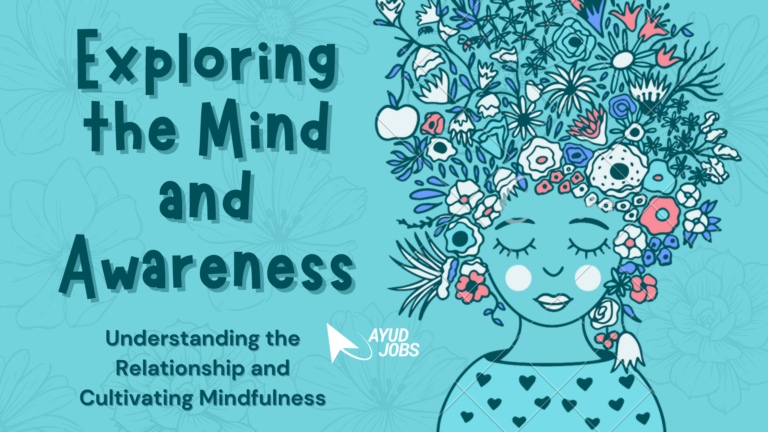Stress Does Not Come from Working; It Comes from Not Working
Stress Does Not Come from Working; It Comes from Not Working
In today’s fast-paced world, stress is a common challenge. Many people think that stress comes from working too much. However, that’s not entirely true. In fact, stress often comes from not working or from not engaging in meaningful activities. Understanding this can help us manage stress better and lead a more balanced life. In this blog, we will explore the concept that stress does not come from working but from not working. We will discuss the reasons behind this, provide practical tips, and share a real-life story to illustrate the point.
Understanding Stress and Work
Stress is a response to pressure or threat. It is the body’s way of dealing with challenges. While work can be challenging, it is not the primary source of stress. Instead, the lack of work or meaningful activity can be more stressful. When we are not working, we may feel a lack of purpose, which can lead to anxiety and stress.
The Role of Purpose in Reducing Stress
Having a purpose is essential for our well-being. When we engage in meaningful work, we feel a sense of accomplishment and satisfaction. This sense of purpose helps to reduce stress. On the other hand, when we are idle or not engaged in meaningful activities, we may feel lost and stressed.
Transitioning from Idleness to Productivity
Transition words can help us understand the flow of this concept better. For instance, consider the following points:
First, when we are not working, we may feel bored.
Then, boredom can lead to negative thoughts.
Next, these negative thoughts can increase stress levels.
Finally, engaging in meaningful activities can break this cycle.
The Negative Effects of Not Working
Not working can have several negative effects on our mental and physical health. These include:
Increased Anxiety: When we are not engaged in work, our minds can wander to anxious thoughts.
Depression: A lack of purpose can lead to feelings of sadness and depression.
Physical Health Issues: Chronic stress can lead to physical health problems such as headaches, high blood pressure, and weakened immune systems.
Practical Tips to Stay Engaged and Reduce Stress
To reduce stress, it is important to stay engaged in meaningful activities. Here are some practical tips:
Set Goals: Having clear goals can give you a sense of purpose.
Stay Active: Engage in physical activities such as walking, yoga, or sports.
Learn New Skills: Learning new skills can keep your mind engaged and reduce stress.
Volunteer: Helping others can provide a sense of purpose and reduce stress.
Socialize: Spending time with friends and family can improve your mood and reduce stress.
Real-Life Example: Sarah’s Story
Let’s consider a real-life example to illustrate this point. Sarah was a software engineer who loved her job. However, due to company downsizing, she lost her job. Initially, she was happy to take a break. But soon, she started feeling stressed and anxious. She missed the sense of purpose her job gave her. Sarah decided to volunteer at a local community center while looking for a new job. She taught coding to children, which gave her a sense of accomplishment. Eventually, Sarah found a new job, but she continued volunteering because it kept her engaged and reduced her stress.
How Meaningful Work Makes a Difference
Sarah’s story shows how meaningful work can reduce stress. When she was not working, she felt stressed and anxious. However, when she started volunteering, she found a new sense of purpose. This reduced her stress and made her feel happier.
The Importance of Routine
Having a routine can also help reduce stress. A routine provides structure to our day and helps us stay focused. When we have a routine, we know what to expect, which reduces uncertainty and stress. Here are some tips to create a routine:
Plan Your Day: Start by planning your day the night before. This helps you wake up with a clear plan.
Set Priorities: Identify the most important tasks and focus on them first.
Take Breaks: Regular breaks can help you stay focused and reduce stress.
Review Your Day: At the end of the day, review what you have accomplished. This can give you a sense of satisfaction and reduce stress.
Conclusion
In conclusion, stress does not come from working but from not working. When we are not engaged in meaningful activities, we may feel a lack of purpose, which can lead to stress. By staying engaged in meaningful work, setting goals, staying active, learning new skills, volunteering, and socializing, we can reduce stress and lead a more balanced life. Remember, having a sense of purpose is key to managing stress. So, find what you love to do and stay engaged. This will not only reduce your stress but also improve your overall well-being.
#StressManagement #MentalHealth #WorkLifeBalance #Productivity #PurposefulLiving #Mindfulness #HealthAndWellness #SelfCare #Engagement #ayud #ayudjobs #askayud #MultiLanguageSupport #ResumeBuilder #gotestit #ayudian #ayudblog
How to Use Ayud Jobs: A Comprehensive Guide
Join our what’s app channel for timely updates
Click here to install Ayud Jobs App from Playstore
Job Providers: https://api.ayudjobs.com/client/register
Mastering Knowledge with GoTestIt: The Ultimate Self Evaluation Tool
How to Use Ayud Career Booster Application: A Comprehensive Guide








If you work in an atmosphere where there is more sound pollution, you are stressed more than doing a work in which you are interested.
If you are compelled to listen things (Bhajane- without laya, tala, western music, speech etc., ) which you don’t like , you will get more stress.
Yes, One of the possible scenario for stress. But we should learn to fix the issue.